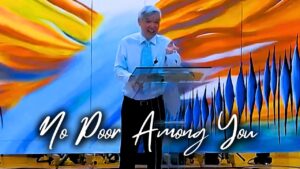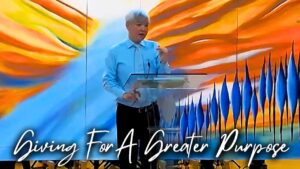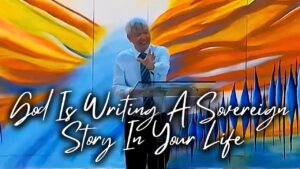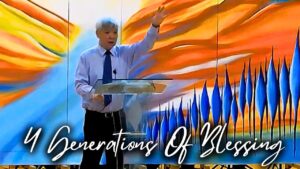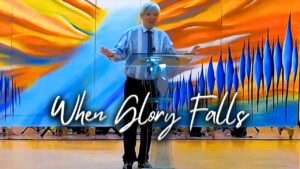By: Pastor Carlos Barcelona Jr.
Romans 15:4 speaks to us about the great relevance and value of the OT to our lives when it says, “…whatever was written before was written for our instruction, so that through our endurance and through the encouragement of the Scriptures we may have hope.”
This morning, I call you to an examination of a young man named Josiah.
Would all the 8 year old in the room please stand? Then everybody is requested to stand.
Imagine what it would be like if, instead of going into the second or third grade, you became the President of the Philippines! That’s what happened to Josiah.
Key Text:
2 Kings 22: 1- 4 Josiah was eight years old when he became king; he reigned 31 years in Jerusalem. 2 He did what was right in the LORD’s sight and walked in the ways of his ancestor David; he did not turn aside to the right or the left. 3 In the eighth year of his reign, while he was still a youth, Josiah began to seek the God of his ancestor David, and in the twelfth year he began to cleanse Judah and Jerusalem of the high places, the Asherah poles, the carved images, and the cast images. 4 Then in his presence the altars of the Baals were torn down, and the incense altars that were above them he chopped down. The Asherah poles, the carved images, and the cast images he shattered, crushed to dust, and scattered over the graves of those who had sacrificed to them.
There are a couple of factors that we need to know that combine to raise our respect for this king:
1. The World Around Him.
To understand the political scene in Josiah’s day, let us go back hundreds of years before Josiah, to the death of Solomon, which marked the beginning of divided Israel.
A civil war broke out, eventually forcing the creation of two separate kingdoms where there was once one nation. Ten of the twelve tribes of Israel united to form what was called the northern kingdom of Israel; the remaining two tribes formed the southern kingdom, known as Judah. By the time Josiah came to the throne of Judah, the northern kingdom of Israel was no more. Eighty years before Josiah, God brought an end to the northern kingdom because of their continued rebellion against Him and the idolatrous practices that pervaded the land. God appointed the ruthless Assyrian army as the instrument of His judgment. The death toll for the Hebrew people was massive, and those that survived were deported to Assyria, never to return to their homeland again.
Now we would think that such judgment from God would moderate the last remaining remnant of the Hebrew people—that such grave consequences for trifling with God should bring fear into the hearts of Judah, causing them to align their lives to His will and ways? No! In the 8 decades that followed the fall of the northern kingdom, Judah sank deeper and deeper into sin. The prophetic preaching of Micah and Zephaniah, of Jeremiah and Habakkuk all took place in Judah during this time, each of them warning of impending judgment unless there was repentance. But their cries fell on deaf ears.
So when Josiah comes as a child to the throne of Judah, he inherited a kingdom where moral anarchy and rampant idolatry were common.
2. His Personal History.
2 Chronicles 33: 3- 6 Manasseh was twelve years old when he became king, and he reigned in Jerusalem fifty-five years. 2 He did evil in the eyes of the Lord, following the detestable practices of the nations the Lord had driven out before the Israelites. 3 He rebuilt the high places his father Hezekiah had demolished; he also erected altars to the Baals and made Asherah poles. He bowed down to all the starry hosts and worshiped them. 4 He built altars in the temple of the Lord, of which the Lord had said, “My Name will remain in Jerusalem forever.” 5 In both courts of the temple of the Lord, he built altars to all the starry hosts. 6 He sacrificed his children in the fire in the Valley of Ben Hinnom, practiced divination and witchcraft, sought omens, and consulted mediums and spiritists. He did much evil in the eyes of the Lord, arousing His anger.
2 Kings 21: 16, 19- 22 Moreover, Manasseh also shed so much innocent blood that he filled Jerusalem from end to end—besides the sin that he had caused Judah to commit, so that they did evil in the eyes of the Lord.
19 Amon was twenty-two years old when he became king, and he reigned in Jerusalem two years. His mother’s name was Meshullemeth daughter of Haruz; she was from Jotbah. 20 He did evil in the eyes of the Lord, as his father Manasseh had done. 21 He followed completely the ways of his father, worshiping the idols his father had worshiped, and bowing down to them. 22 He forsook the Lord, the God of his ancestors, and did not walk in obedience to him.
Josiah’s grandfather was Manasseh, who ruled for 55 years in Judah, and led the most disgusting and abominable life. What would it be like as an 8-year old to have your recollections of your grandfather as a man who dedicated himself to removing God’s Word from Judah and replacing the worship of God with idols? How would it affect Josiah to know that his grandfather sacrificed some of his own children to satanic gods? Or to read the accounts of the wholesale slaughter of innocent people that marked his reign, such that the Bible says of him, Manasseh also shed so much innocent blood that he filled Jerusalem with it from one end to another. Add to this the 2 year reign of his father, Amon, who followed in his grandfather’s footsteps.
This was the spiritual heritage handed to Josiah. And this was the reason he came to the throne at such an early age. He had no godly model to follow in his immediate family. He faced an unpredictable and unstable political climate in his world. And his nation was spinning out of control, headed for the judgment of God. What possible difference could a child make in such horrible conditions?
Today, I would like to entitle my sharing: ‘THE WAY TO MOVE ON IS TO GO BACK’
Everyone who is a Christian in this room should know and take seriously the secret to Josiah’s influence. How did he move on at such a time? He went back! He went back to a:
I. Wholehearted Devotion to God.
2 Kings 22: 2 And he did what was right in the eyes of the Lord and walked in all the way of David his father, and he did not turn aside to the right or to the left.
Wholehearted means the opposite of half-hearted. This is the blatant contrast to the popular brand of these days’ Christianity that has divided loyalties, that operates on mild enthusiasm, partial obedience, and convenience-driven service.
D. A. Carson defined the Christianity of our times. He said, “We drift toward compromise and call it tolerance; we drift toward disobedience and call it freedom. We cherish the indiscipline of lost self-control and call it relaxation; we stoop toward prayerlessness and delude ourselves into thinking we have escaped legalism; we slide toward godlessness and convince ourselves we have been liberated.” This is a cheap version of Christianity.
Wholeheartedness means “holding nothing back.” It is genuine, not pretending. It is fervent, not warm. It is complete, not partial. Wholeheartedness toward God is single-minded in its pursuit, with no reservations, no compromises, and no excuses.
…he did what was right in the Lord’s sight. He didn’t take his cues from his own family. He rose above the spiritual emptiness at home. He didn’t succumb to the anti-God attitudes and godless choices of his nation. He rose above peer pressure. He swam against the current of his day by setting a simple personal priority at the core of who he was. More than anything else, he wanted to live a life pleasing to God!
Verse 3 tells us that as he grew older, his devotion to the Lord increased so that it was obvious to those around him. By the time he was sixteen, his determination to pursue and worship God marked his public life that the historian who wrote 2 Chronicles made a record of it for us. By his twentieth birthday, his character had been so shaped by God that he used his office to institute a nationwide purging of every trace of idolatry.
It took six years to take away all the false crutches that people were looking to. And then, when he was twenty-six years old, he turned his attention on the dilapidated Temple, which had not been attended to in over 250 years (since King Joash). In the eighteenth year of his reign, in order to cleanse the land and the temple, he sent Shaphan son of Azaliah, along with Maaseiah the governor of the city and the recorder Joah son of Joahaz, to repair the temple of the LORD his God.
At every stage of his life his pursuit of this simple goal never waned. He wanted his life to be pleasing to God. He was religious in his action. He set his eyes on a single, simple goal—to so live that God is pleased with all his ways.
Such an example is full of instructions for our modern life. Never be a consenting party, even by your silence, to what your conscience tells you is wrong. Never consent even by your silence to anything dishonoring to God or not in accordance with His will. Never be a consenting party to anything that you would be ashamed of in the sight of God and men. Never be silent to acts of injustice to others, to dishonesty or unfairness of any kind, to profanity, to neglect of Sunday observance or any other form of prevailing wickedness.
II. The Great Commandment (Word of God)
What is the Great Commandment? Remember when the teacher of the Law came to Christ Jesus with that question: Teacher, which is the greatest commandment in the Law? What did Jesus quote?
Deut. 6:5: Love the LORD your God with all your heart, with all your soul, and with all your strength. This is the core command, the starting place for all the other commands of God. If we don’t get this one right or if we don’t have God at the center of our lives, then it doesn’t matter what we do—it’s not going to make any difference as far as God is concerned.
It is a great national calamity when the Divine Word is neglected and forgotten. But when read, studied and loved, it is a nation’s blessing.
Josiah loved the Word. He was not perfect; he was just like any of us. But the compass needle of his heart always pointed to the true north of loving God. He began right where he was, and as best he knew how, he gave all of himself to God. His desire was to be found doing the will of God.
2 Kings 23: 25 Before him there was no king like him who turned to the LORD with all his mind and with all his heart and with all his strength according to all the law of Moses, and no one like him arose after him.
The declarations of the Divine Word awaken the deepest interest and concern in the mind of the sincere seeker after truth. It is in the light and teaching of God’s Word that our life or work becomes most clearly defined to us. It is where we learn what sacrifices must be made, what points must be guarded, what work is worthy of our powers and possible for us to do, and it is where we find the source of inspiration and strength in every struggle.
Psalms 19: 7- 10 The law of the Lord is perfect, converting the soul: the testimony of the Lord is sure, making wise the simple. 8 The statutes of the Lord are right, rejoicing the heart: the commandment of the Lord is pure, enlightening the eyes. 9 The fear of the Lord is clean, enduring for ever: the judgments of the Lord are true and righteous altogether. 10 More to be desired are they than gold, yea, than much fine gold: sweeter also than honey and the honeycomb.
III. Actualization of Conviction
He Repaired the House of the Lord.
2 Kings 22: 5 And let them deliver it into the hand of those doing the work, who are the overseers in the house of the Lord; let them give it to those who are in the house of the Lord doing the work, to repair the damages of the house..
2 Kings 22: 8-9 Hilkiah the high priest said to Shaphan the secretary, “I have found the Book of the Law in the temple of the Lord.” He gave it to Shaphan, who read it. 9 Then Shaphan the secretary went to the king and reported to him…”
The Discoveries of the Divine Word are often made in connection with the Temple. No repairs of any moment had been done to the Temple since the days of Joash – that is more than 200 years before. One of the first acts of Josiah was to restore the mutilated building and purge it of its idolatrous abuses. In the progress of this impressive work, the Divine Law was formed, and this discovery had an important influence upon the succeeding efforts of his reforms.
The repair of the house of the Lord has 2 implications in our time.
1. Repair of our worship.
2. Repair of our broken lives.
Josiah’s grandfather had tried to wipe out every copy of God’s Word, so when a discovered copy of Deuteronomy was brought to Josiah, he immediately responded to the Lord with fresh renewal, and called all of Judah to hear it. After this, Josiah publicly made a covenant to obey the Word of God with all his heart and with all his soul. He walked in the ways of his ancestor David.
The ways of…David are easy to discern. He wrote about devotion to the Word of God, to prayer, to fasting, to regularly worshiping God in the sanctuary—these are the frequent themes of David’s writings.
The phrase “walk in the ways” is talking about a lifestyle. In other words, Josiah’s pursuit of God was not an on-again, off-again thing. It was not only expressed when he went to worship on the weekend. He wove specific habits into the rhythms of his days that kept him on a path of holiness and tuned his heart to the Lord. It was holy habits that strengthened his life.
Josiah also made up his mind before the temptations came that he would not be turned aside by what the world had to offer … he did not turn aside to the right or the left.
The wisdom of Prov. 4:25-27 speaks to this resolve: Let your eyes look forward; fix your gaze straight ahead. 26 Carefully consider the path for your feet, and all your ways will be established.27 Do not turn to the right or to the left; keep your feet away from evil.
There is simplicity to the life of the godly. All through the Bible, the way of righteousness is a straight ahead. It calls us to avoid the detours off this path because they promise much, but lead us to dead ends and death.
We are all responsible for our own life and for our own conducts, no matter how others may act. It may cost us hard struggles to resist the temptation that surrounds us on every side; we may be serving in unbelieving households, we may be thrown by our business among ungodly companions and surroundings – no matter! God expects us not to turn aside to the right or to the left. He expects us to be faithful.
Never suffer yourselves to be led astray by the notion that godliness is an unmanly thing. The truly godly man is the noblest and most perfect man. He is great in all that constitutes true manhood. And if you want to find the greatest heroes in the world’s history, you will find them, not among the followers of the world’s fashion and the world’s pleasure, but among those who go back to God, those who go back to the Word and those who put to work their conviction.
CONCLUSION:
The way to move on is to:
1. Go back to our devotion to God wholeheartedly which means “holding nothing back.” Genuine, not pretending, fervent, not warm, complete, not partial, single-minded in its pursuit, with no reservations, no compromises, and no excuses.
2. Go back to the Word, read, study and love it.
3. Put your conviction to action. Let holy habits strengthen your life. Do not turn to the right or to the left and determine to keep your feet from evil.
Preached on January 8, 2017 @ Evangel Tabernacle

